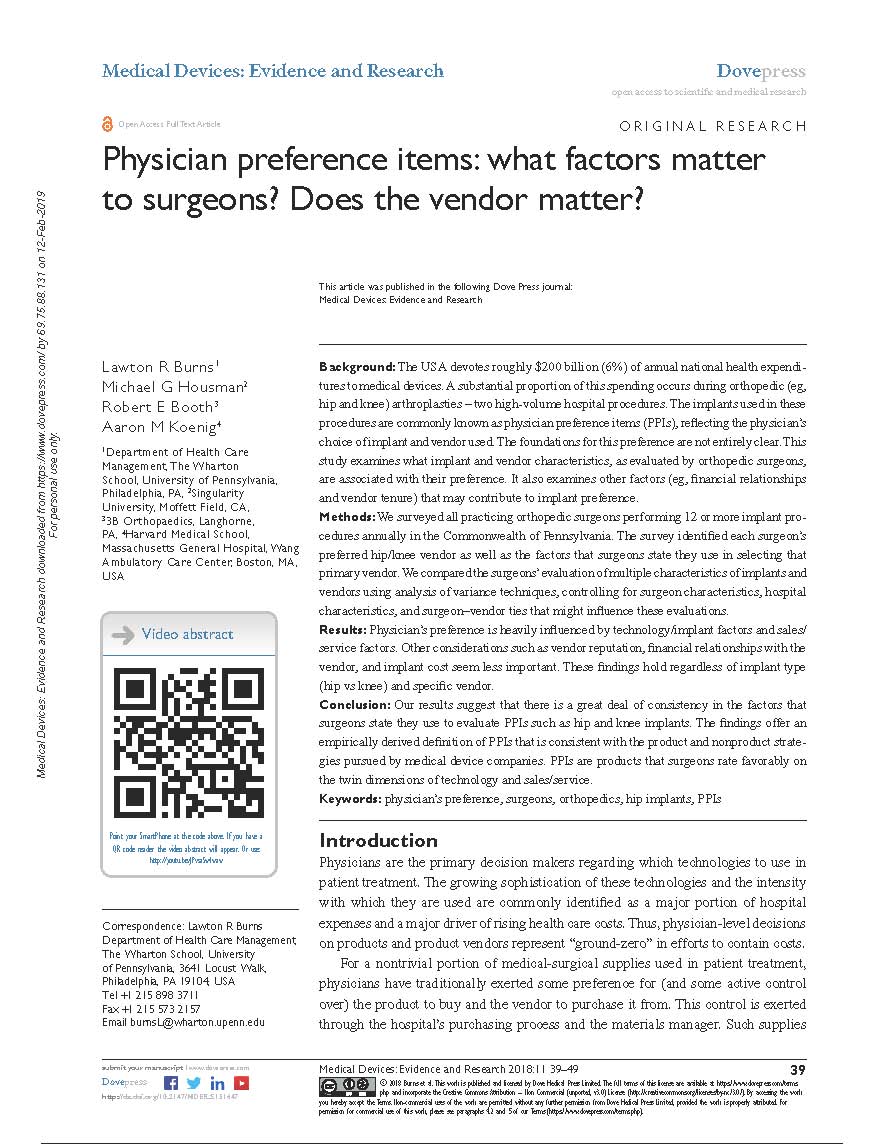Physician preference items: What factors matter to surgeons? Does the vendor matter?

Lawton R Burns,1Michael G Housman,2 Robert E Booth,3 Aaron M Koenig4
1Department of Health Care Management, The Wharton School, University of Pennsylvania, Philadelphia, PA, 2Singularity University, Moffett Field, CA, 33B Orthopaedics, Langhorne, PA, 4Harvard Medical School, Massachusetts General Hospital, Wang Ambulatory Care Center, Boston, MA, USA
Background: The USA devotes roughly $200 billion (6%) of annual national health expenditures to medical devices. A substantial proportion of this spending occurs during orthopedic (eg, hip and knee) arthroplasties – two high-volume hospital procedures. The implants used in these procedures are commonly known as physician preference items (PPIs), reflecting the physician’s choice of implant and vendor used. The foundations for this preference are not entirely clear. This study examines what implant and vendor characteristics, as evaluated by orthopedic surgeons, are associated with their preference. It also examines other factors (eg, financial relationships and vendor tenure) that may contribute to implant preference.
Methods: We surveyed all practicing orthopedic surgeons performing 12 or more implant procedures annually in the Commonwealth of Pennsylvania. The survey identified each surgeon’s preferred hip/knee vendor as well as the factors that surgeons state they use in selecting that primary vendor. We compared the surgeons’ evaluation of multiple characteristics of implants and vendors using analysis of variance techniques, controlling for surgeon characteristics, hospital characteristics, and surgeon–vendor ties that might influence these evaluations.
Results: Physician’s preference is heavily influenced by technology/implant factors and sales/service factors. Other considerations such as vendor reputation, financial relationships with the vendor, and implant cost seem less important. These findings hold regardless of implant type (hip vs knee) and specific vendor.
Conclusion: Our results suggest that there is a great deal of consistency in the factors that surgeons state they use to evaluate PPIs such as hip and knee implants. The findings offer an empirically derived definition of PPIs that is consistent with the product and nonproduct strategies pursued by medical device companies. PPIs are products that surgeons rate favorably on the twin dimensions of technology and sales/service.
Keywords: physician’s preference, surgeons, orthopedics, hip implants, PPIs
